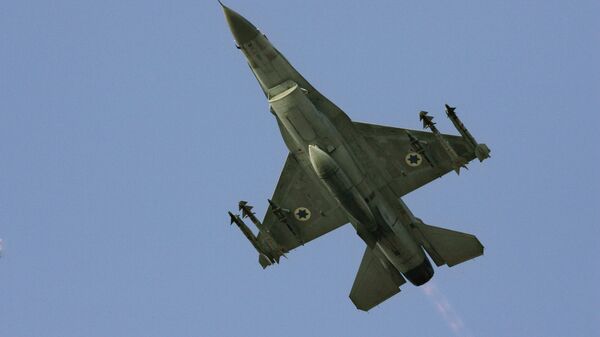The military aid package agreed upon between the US and Israel will allow the latter to upgrade most of its fighter aircraft, improve its ground forces' mobility and strengthen its missile defense systems.
The deal also includes major concessions granted by Israeli Prime Minister Benjamin Netanyahu. Israel agrees not to seek additional funds from Congress beyond what will be guaranteed annually in the new package.
It also agrees to phase out a special arrangement that has allowed Israel to spend part of its US aid on its own defense industry instead of on American-made weapons.
Radio Sputnik discussed the issue with Robert Jervis, Professor of International Affairs at Columbia University, who explained what the US gets in return.
"It is a two-way street," he told Sputnik.
"We support them, they give us a fair amount of information, the things they pick up on other countries' military which may be useful for us," he explained.
"They do a lot of cutting edge technological things which they pretty much share with us. We may give them more, but it is still a two-way street," he reiterated.
The political scientist also noted that the deal might be a way to reassure Israel that the US still has Israel's back. It might serve to undercut some of the Israeli criticism in the follow up to the deal with Iran.
"Israel has tremendous domestic support in the US," he said.
"There is a significant Jewish lobby, AIPAC (The American Israel Public Affairs Committee) is important, but that wouldn't be nearly enough.
There is enormous support in the Christian community, especially in the evangelical movement," he said.
There are many more evangelicals than there are Jews, he added, so the political pressure in Congress is partly from them.
"It is not because these movements are so strong it is because there is nothing on the other side," he said.
The expert explained as there is no strong pro-Palestinian, pro-Arab lobby, not many Palestinians or Arabs reside in the US, hence the reason for the decisions made in favor of only one country in the Middle East region.





